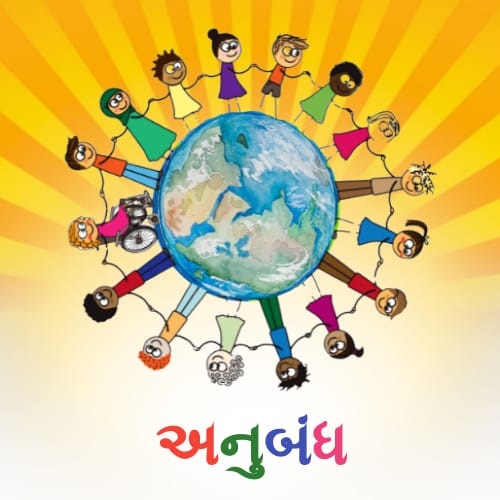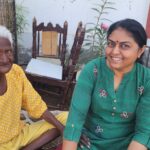Nurturing a Society Free from Fear, Violence, Exploitation
Anubandh represents a relationship connected with nature. This relationship advocates for a fair, prosperous, healthy, beautiful, peaceful, and equitable sustainable development through self-reliance, self-employment, and self-learning. To manifest the ideas of Anubandh, we are establishing a local-level mutual exchange process. Inequalities prevailing in the current social systems have taken a significant toll on human values. Development systems driven by equality are completely missing. Certain limitations of the current economy, industrialization, and globalization have been exposed due to the widening of income gaps and reducing opportunities for those at the bottom of the socio-economic hierarchy in society. Human life has reached a critical point within these current systems.
Common people lack not only food, shelter, and clothing but also health, life-oriented education, a socio-cultural environment, and development at every stage. Injustice, inequality, discrimination, and exploitation have become more evident than ever, posing a great threat to both local and global society. This situation would worsen further if primary education, primary health, and full employment opportunities were not made available to those who need them.
Education should also focus on life and life skills beyond schools, colleges, and universities. It should align with the requirements of the family and society, preparing citizens for their duties in shaping peace and acting as agents of change. As responsible citizens of society, it is imperative that education makes everyone aware of their rights and duties.
Education should equip citizens for their roles in the economy, both locally and globally. So, while education must strengthen individuals to meet the financial needs of their families, it should not be solely job-oriented.
Education should establish a social, economic, cultural, and political connection between producers, consumers, and investors. Education that creates a constructive, emotional, creative, positive, peaceful, and joyful life for all is the solution to the current local and global problems. There is an urgent need to establish such a connection.
We at Anubandh believe that only economically, socially, and politically decentralized systems can make society fair and prosperous. Creating opportunities for self-employment at the local level appears to be the most effective solution. Following this, Anubandh is working towards redefining the relationship between production, consumption, human life, and nature.
In response to global issues and finding their solutions at the local level, Anubandh is creating an ecosystem where the consumption of local products produced using local resources is encouraged before making them available to other markets. It is imperative to spread education among local communities to realize the goal of ‘Produce Locally, Consume Locally, Share Globally’.
Anubandh aims to prepare children, youth, and citizens to develop such communities and create a society that is free from any kind of fear, violence, and exploitation.
Anubandh has decided to work in four main areas to achieve its goal of developing a peaceful and prosperous society
- Creating local employment opportunities through skill development and women empowerment (for promoting local production and local consumption)
- Nirant Ghar (Community Home – A place for elderly people and others in need of shelter to live peacefully in tune with nature)
- Anubandha Karmpeeth (An institute for self-learning of life skills and living harmoniously)
- Organic farming and animal husbandry (for self-reliance and self-sufficiency)
Anubandh’s activities are also contributing to solutions for the following issues
- Local employment
- Health and hygiene
- Cooperative activity and local associations
- Capacity building, research, and training programs
- Land reclamation and water power, environmental protection
- Life-saving and life-nourishing education
- Library
- ‘Vaat Vaat Ma’ – a freewheeling conversation with women, youth, teenagers to encourage expression through sharing reflections of personal experiences and observations
- Activities for creating healthy children communities
- Decentralized society

